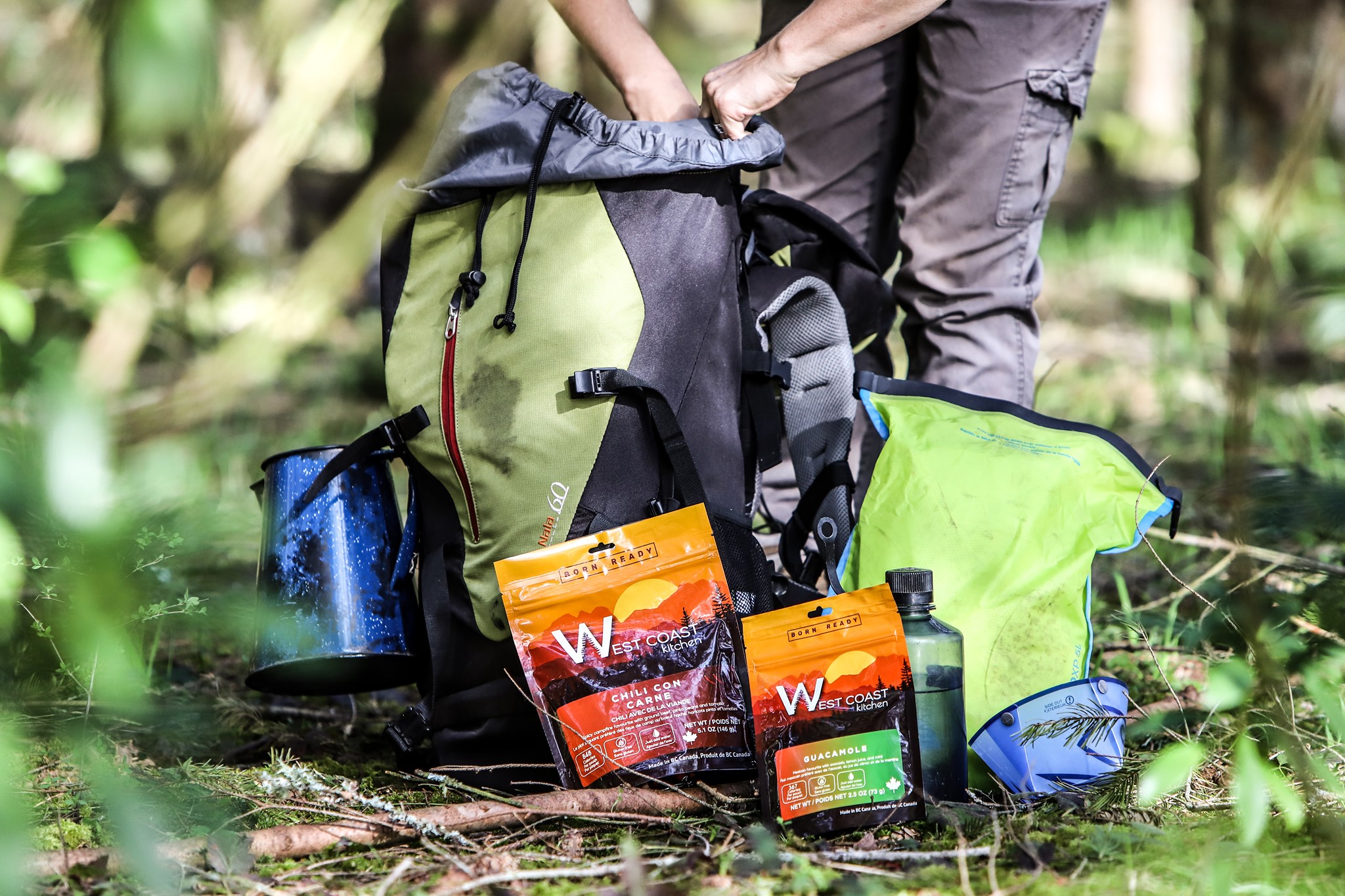Edible Notables: Fat Chili Farm & West Coast Kitchen
“It was a hobby that got out of control!” is how Penny de Waal describes the success of Fat Chili Farm.
She and Shani Farboud started the farm in the Cowichan Valley in 2011 so their entrepreneurial son Avasta (then 13 years old) could run a stall at the local farmers’ market. At the time, there were no hot chili suppliers on the island, and since they loved spicy food, it seemed like a natural marriage. What they didn’t expect was that a decade later, Fat Chili Farm would be a well-established local hot sauce business—or that they would have expanded to producing a line of freeze-dried meals and snacks called West Coast Kitchen.
“Coming to Vancouver Island as immigrants in 2006, we were struck by the gap in local food production serving the wilderness tourism market and hiking, fishing and hunting communities. Although wilderness tourism is one of the major pillars of economic diversification in B.C., the sector remains largely reliant on imported dried food products,” explains Penny. So once again, they saw a need in the market they could fill.
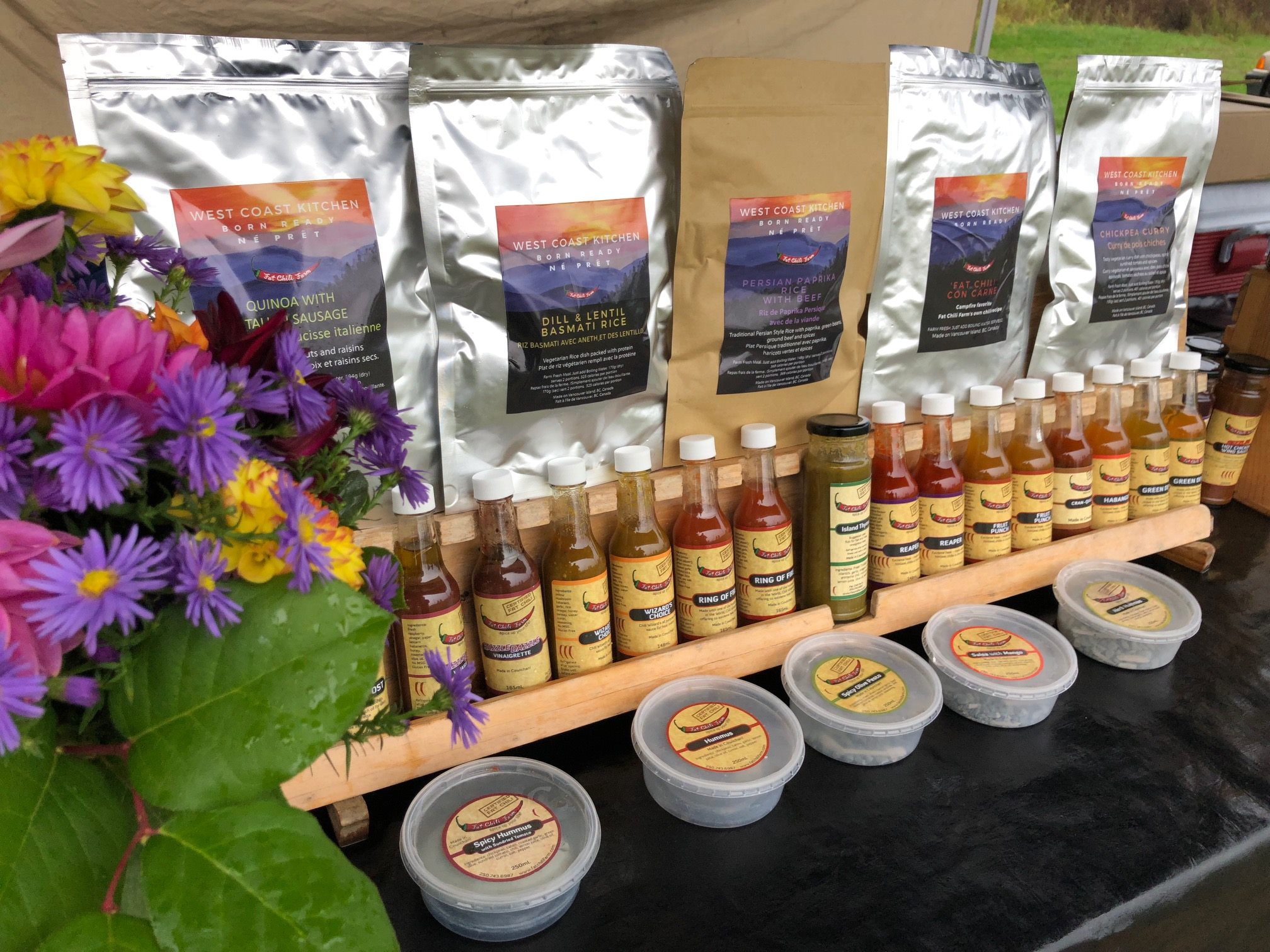
“As an avid wilderness hiker married to a discerning chef, I have constantly been in search of how to achieve the expectations of home cooked food in the wild,” says Penny. Simply put: dried noodles just wouldn’t cut it, and all of the imported products they tried didn’t meet their expectations. But once they figured out how to freeze dry their food, they realized they could prepare exactly what they wanted in a lightweight form without losing the taste and nutritional value of fresh food. So they began experimenting with Shani’s tried-and-true recipes, soon resulting in West Coast Kitchen. From full meals to high-protein snacks like dried fresh hummus and guacamole, they’ve created a product that is not only fuel for outdoor adventures, but actually tastes good, too.
“We are one of only three Canadian manufacturers that we know of,” says Penny. “Everything is made at our commercial kitchen at our farm in Cobble Hill farm without preservatives or additives.” The product has a long shelf life of five years, and with the recent wildfires, floods and, of course, the pandemic, they’ve found themselves becoming more popular in the emergency preparedness sector too. In response, they’ve created a variety of emergency preparedness packages available in both single and double-portion meals and snacks. While they’re thankful for the success of their business, it does come at a price: “Because of the high demand, we have found it increasingly hard to take time off to get out into the wilderness and enjoy our own products!”
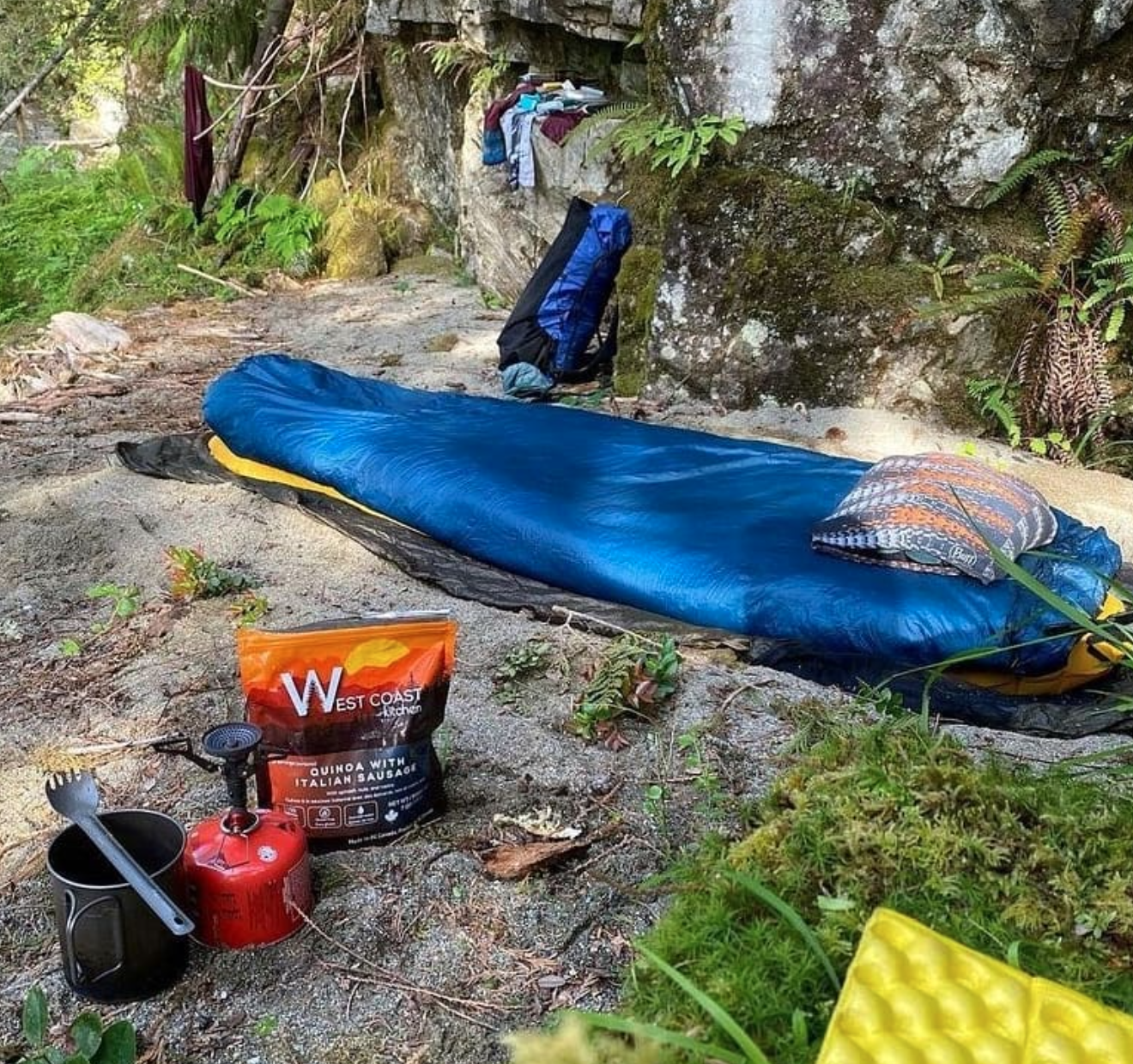
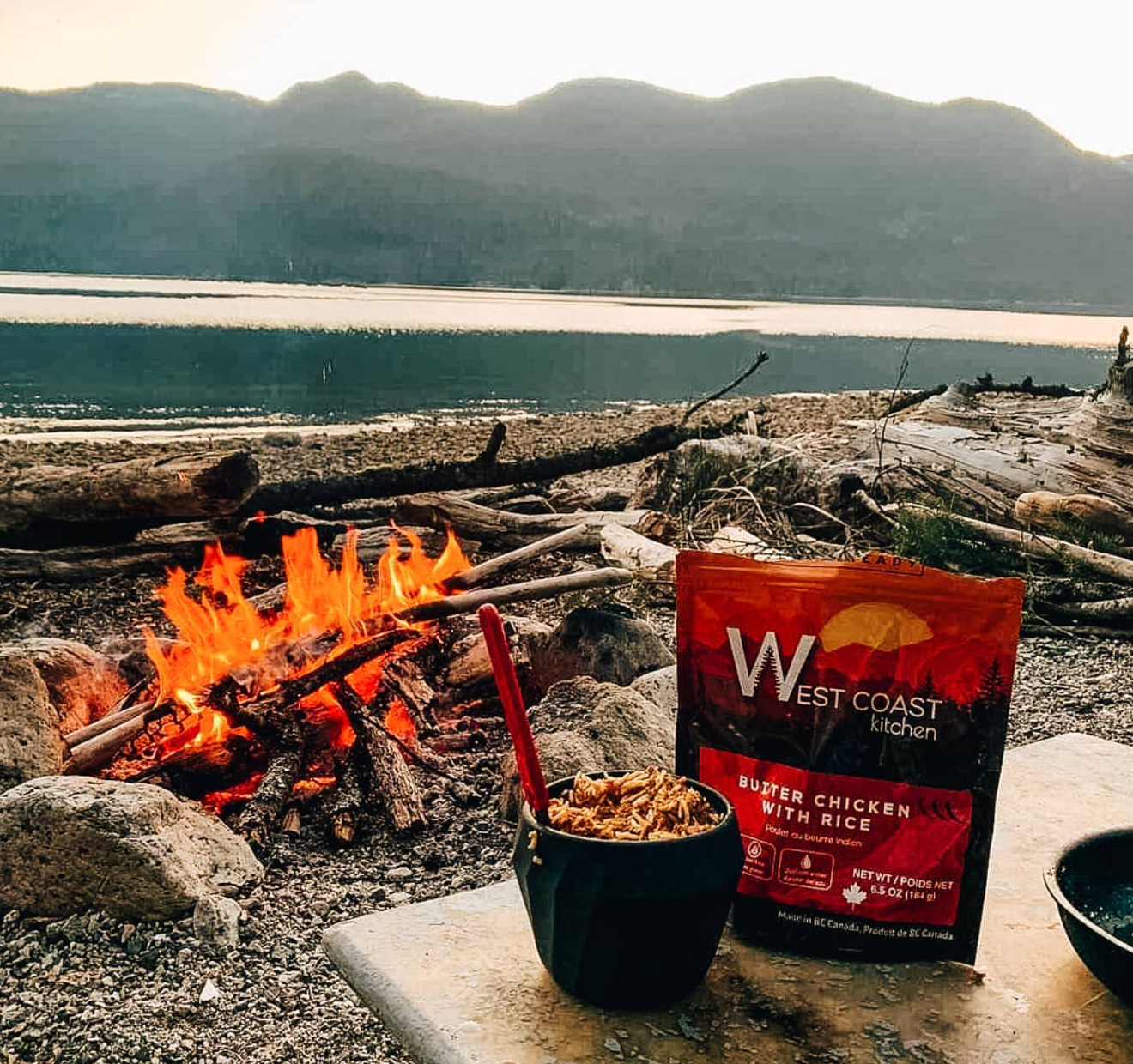
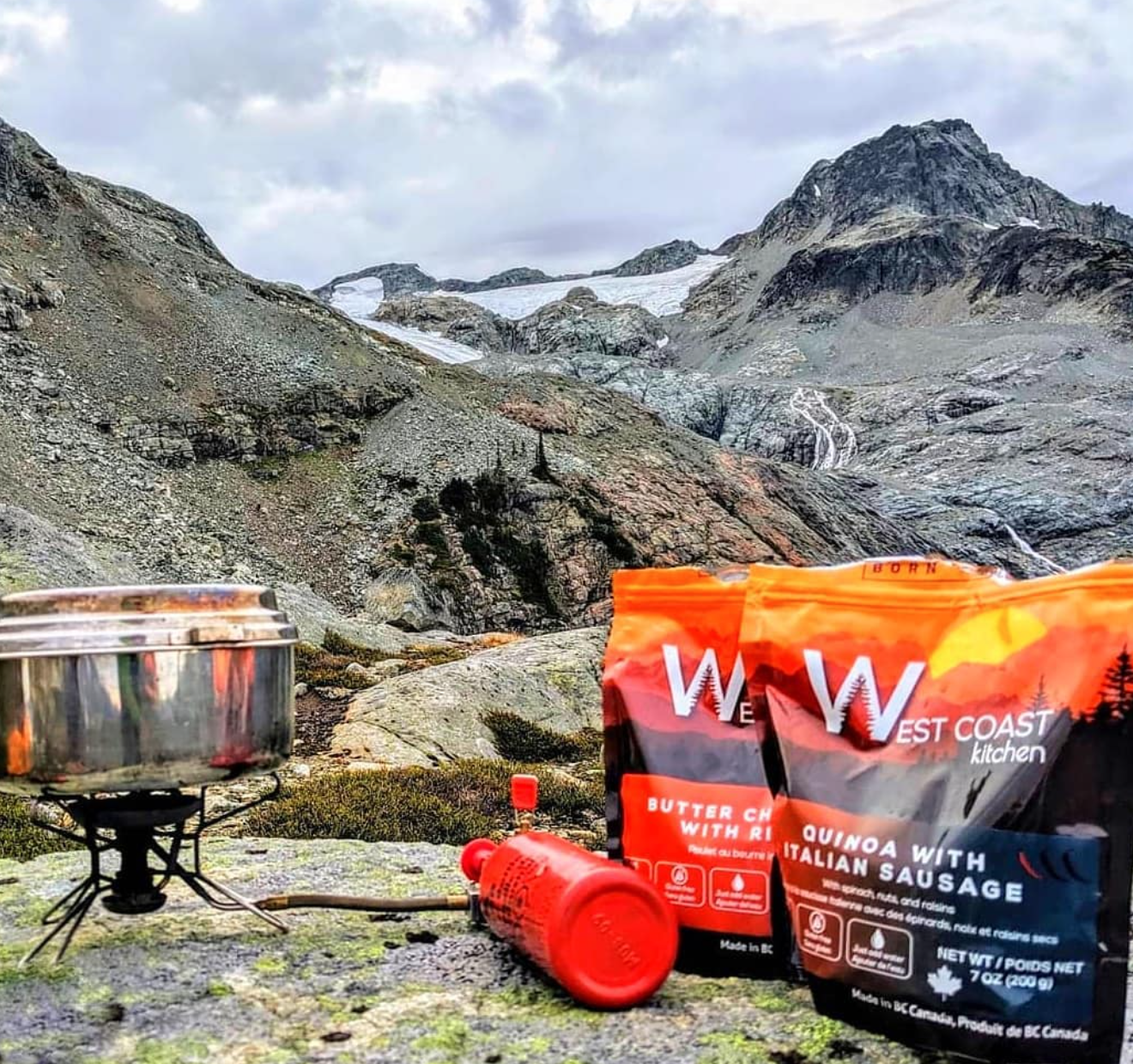
Photos from Instagram, left to right: @toddsinstalife / @isaacbooth / @_dawilson_
Although Shani and Penny both have backgrounds in food production and business development, Fat Chili Farm was their first foray into scale manufacturing. “It’s been a steep learning curve, especially with the freeze-dried meals,” Penny admits. But over the years, they have been intentional about building a team that has the right skills and technical knowledge to help them grow their ventures. “Get the right people doing the right things,” Penny advises other entrepreneurs. “Know your own strengths and limits, and don’t be afraid to ask for help!”
They have also made it a priority to listen to the feedback from their customers and are constantly improving their products as a result. “The feedback helps us make sure our products stay focused on our customer need,” says Penny. Some changes that they’ve made because of customer feedback include adding a scale to the packaging for easier water measurement, creating a cooked meat-only recipe to add to other meals to boost protein, and creating their first pasta option, which features “our own olive pesto recipe, feta and parmesan cheese, dried cranberries, chickpeas and fresh spinach.”
Ultimately, the pair are inspired by the natural beauty of Vancouver Island and their desire to get outside and enjoy it—and help preserve the environment for generations to come. The surrounding wilderness isn’t something they take for granted, as they previously lived in busy, polluted cities around the world before emigrating to the Island with their three kids. “One of our main objectives was to raise [our children] with knowledge, respect and love for the wilderness environment,” says Penny, with West Coast Kitchen now serving to elevate that outdoor experience.
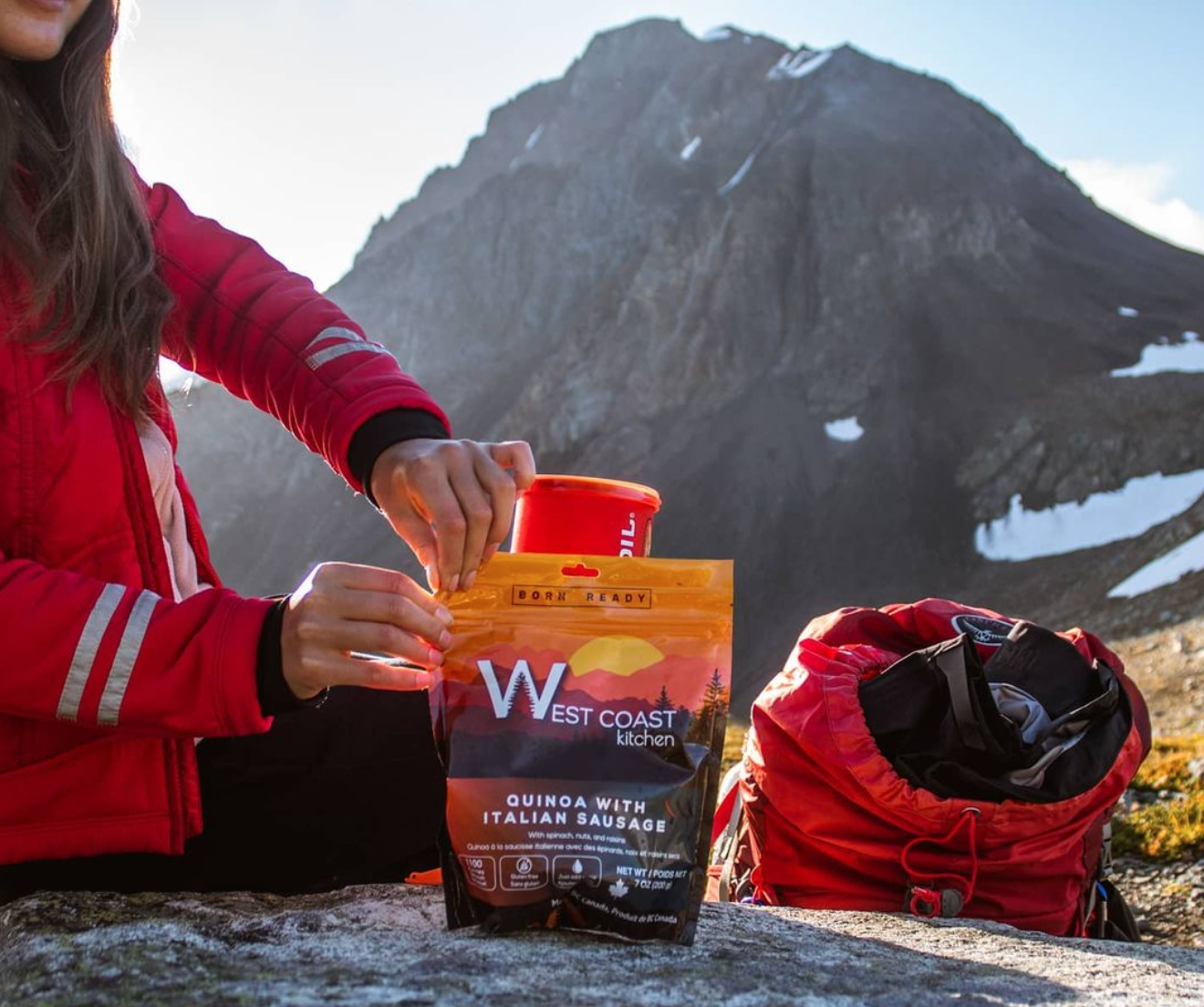
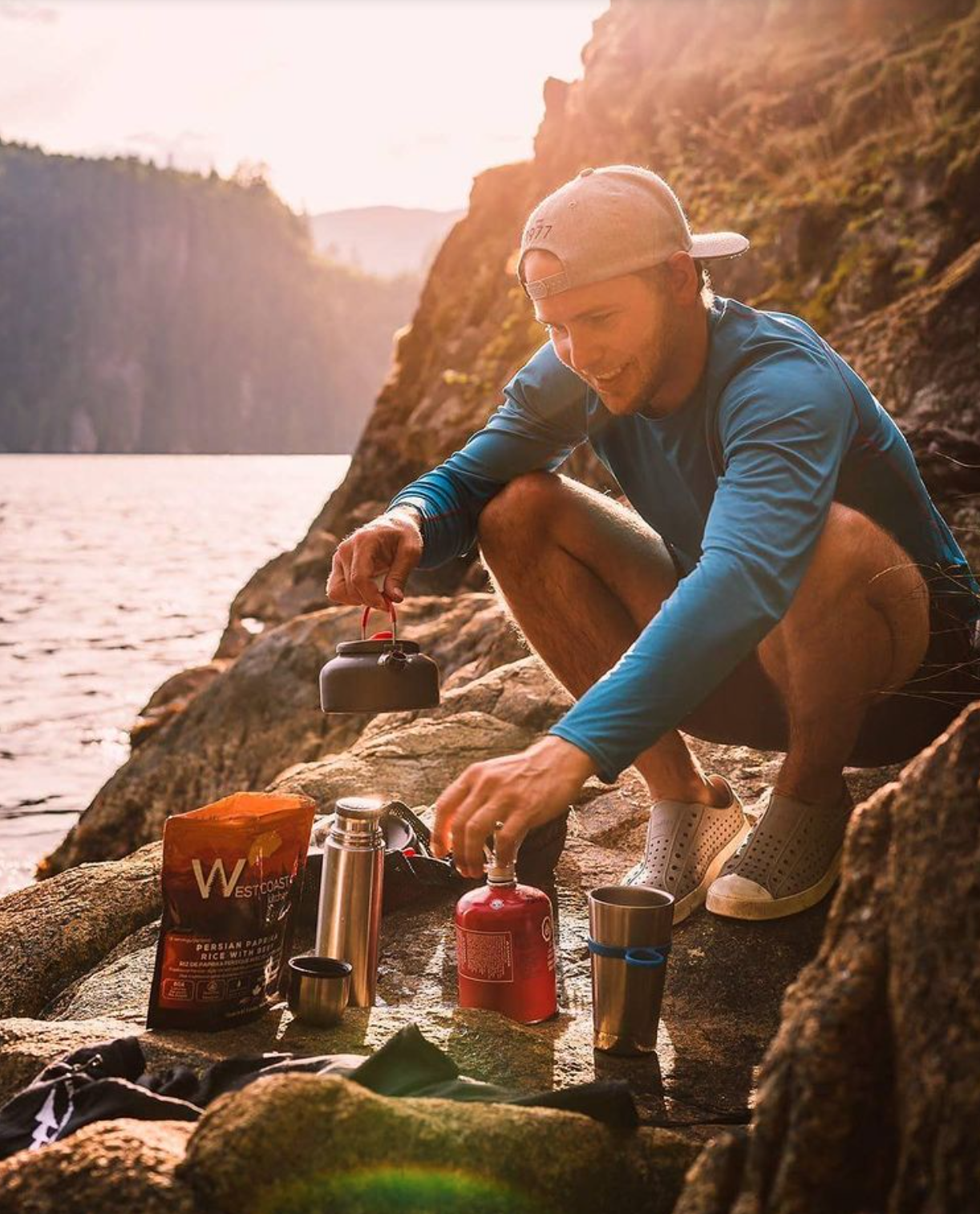
Photos from Instagram, left to right: @mathilde.lelia / @katmoff.at
The Edible Notables Series is proudly sponsored by Beacon Law Centre.



